REASON FOR BEING
Our decision to forgo the Oregon coast due to rainy weather has made us even more anxious to rejoin the coastal route in California. You see, biking California’s Pacific Coast Highway , aka California State Route 1, is the real reason we are here.
Of course, the earlier part of the journey – from hanging out with Chris and BJ Ohlweiler in Seattle, to meeting great people like Bob Kuntz, Dave and Mary Huycke, and Jason Domanico and visiting Elisabeth’s sisters, not to mention crossing the Cascades and our travels through Eastern Washington – was terrific. However, what we envisioned when we first concocted this trip so many months ago was riding that “ribbon of highway” all day, with the big, blue Pacific Ocean beating the cliffs to our right and a campsite under the stars each night.
Also, in Elisabeth’s mind, “steeper” means “better.” If she must get off her bike and push, well, that just means the ride is living up to its press. So pedaling a steep California grade, then flying down the other side, the blue waters of the Pacific keeping pace alongside her is her raison d’être. (Elisabeth is French.)
As I’m sure you could guess, while my priorities tend to fluctuate, those of my wife do not. Although the idea of more wine, more great food, and more socializing with more fabulous people might (almost) make me forget that I’ve travelled to the Pacific Northwest in order to ride my bike, Elisabeth is ready to pedal. A grinding-her-teeth kind of ready. If a fellow ever needed to engineer a fast exit from the confines of big city San Francisco, it is yours truly. My wife is ready to roll, and I need a taxi driver with a minivan to get us going.
TAXI?
But after calling several Bay Area cab companies, I am batting a big, fat zero. No one wants to carry us the thirty or so miles from Richmond to the coast. “Sorry sir, we don’t service that area,” is a popular answer to my request. (It’s funny; I always thought that taking people from one place to another is what taxi cab drivers do for a living. Apparently not in the Bay Area.)
Finally, I reach Randeep, a dispatch manager at the only cab company in the city of Richmond, proper. “Yes, we help you,” he says, in a wonderfully cheery voice – and in just slightly broken English.
“Thank you, little baby Jesus,” I whisper silently, as I make a mental sign of the cross. The fates seem to have intervened, and my sagging hopes rise. But as my conversation with Randeep drags on, my optimism fades. Repeatedly, he asks, “Where you want to go, Mister?” and I understand that the trouble lies somewhere between Randeep’s deep commitment to customer satisfaction and his inherent inability to understand my actual request.
With deference to his obvious willingness to be of help, I dutifully repeat my answer: “Highway 1 at Pacifica Beach.” And Randeep cheerfully repeats his question.
It takes a few minutes, but finally I am worn down. “For God’s sake, Randeep. Don’t you have GPS?”
After a long hesitation, he replies. “Oh, yes. How you spell that?”
I am in seriously deep doo-doo. But with all other options exhausted, I have to face the fact that, for better or worse, Randeep is our man. If we have a chance of making it to the coast with our bikes and our gear, Randeep and I are just going to have to work this out. And so, for the next several minutes, I slowly go through the excruciatingly detailed process of directing Randeep to a location along the coast that he can clearly identify.
Eventually, after multiple renditions of location and car-size checking, I feel as if Randeep and I have reached an understanding. For a moment, I wonder if Henry Kissinger felt the same measure of relief I am experiencing, when he finally struck an accord with the North Vietnamese at the Paris Peace Talks in 1973. (Randeep may share my sentiment. A long silence has descended over our call. I imagine Randeep taking a moment to offer a prayer of thanks and light a votive candle beside his desk.)
Then he says, “Driver see you Thursday, nine o’clock. No worry, mister.” And with that, he is gone.
Not wanting to let Elisabeth know of my struggle to appropriate a ride for Thursday, I cheerfully report, “Our ride is all set!” “Great news, honey!” Elisabeth sings out, her desire to get back to pedaling oozing from every word.
THURSDAY MORNING
It’s Thursday morning, and I keep envisioning a tiny sedan arriving, Bollywood soundtrack blaring, and a nice Middle Eastern gentleman at the wheel. In my mind, the man eases to a stop, then, seeing our bikes and our mountain of gear, shakes his head and yells, “Sorry, Mister. No can fit,” before driving off.
I try to control my thoughts, though, clinging instead to Randeep’s assurances: “Yes, yes, yes. Two bikes, minivan, 6143 Plymouth Avenue, Thursday, nine o’clock.” But it’s now 9:05. Our bikes and gear are ready to load at the top of Coco and Guy’s steep drive, and Elisabeth has been in her cycling clothes since seven and pacing the drive since eight-thirty.
Nervously, I dial the taxi company, and someone – not Randeep – answers. I ask about our cab, and the polite Asian man replies, “You ordered taxi?”
A sour taste forms in my throat, and a small voice located near my brain’s hippocampus whispers, “Told you this was going to be a mess.” But I press on, repeating the arrangements I made with Randeep, trying not to give away the situation to the pacing Elisabeth. “Two bikes and a mountain of gear. We need a minivan,” I plead to the new dispatch person.
I see Elisabeth glance in my direction, but decide not to make eye contact. I am playing this very cool.
Suddenly, the dispatcher shouts, “Send taxi right away.” Then, CLICK, he hangs up. Stunned, I keep the phone to my ear because Elisabeth has looked up again. “Everything OK, honey?” she asks.
I need a moment to compose myself. Pretending I am still connected, I hold up my hand and send her the international signal for “Just a minute. I am still talking.” Then, as the bile starts to retrace its path back to my stomach where it belongs, I “hang up” and shout happily, “Taxi’s on the way, dear!” But I know I only have, like, ten minutes tops before I have to come clean.
Then, like a miracle, a dark green minivan with a caved-in driver’s side door panel comes to a rest at the bottom of the steep drive.
I holler at Elisabeth, “See, honey. Told you they would be right here.” But Elisabeth’s eyes have gone directly to the crumpled panel on the side of the van. I know Elisabeth. In her mind, alarm bells are going off. She is saying, “Who the hell is this guy? No way I am riding in this shaky piece of crap!”
Of course, I am running interference, trying to get the bikes loaded before Elisabeth balks at the entire operation. I yell at the driver, “Come on up, so we can get loaded!” To which he shakes his head and shouts, “NO, TOO STEEP,” and his gaze shifts to the mountain of panniers piled near our bikes.
I sense his indecision. He is broadcasting on a frequency that only two males can interpret. He is making calculations. He grips the steering wheel in a sign of defiance. No way he is going to back up the steep drive. And there is no way I am going to schlep the bikes and the gear down the drive.
THE STANDOFF
It’s between me and the driver, now, and I rise to meet his challenge. In the parlance of red-blooded American maleness, I call upon my power position. Widening my stance, I turn my feet outward and place my hands squarely on my hips. I pivot so my body is parallel to the taxi. The akimbo effect makes me appear larger, an immovable force. Then I point directly at the driver and add a military wave, yelling, “BACK UP!”
I see him receive my message: He jolts a bit, as if a small charge of electricity hit him. Then, for a long five count, he just sits there, motor idling. Committed, I hold my position. If I falter now, I lose. But I don’t. I win. In amazement, I watch as his will droops like a flag after a breeze has stilled. He pulls the minivan forward, then begins to snake his way backwards up the drive.
Elisabeth looks over, and I say, “I think he crashed the door the last time he tried this maneuver.” We both laugh, and I breathe a sigh of relief.
The driver exits the taxi cab. Up close I see he is a small Indian man, with dark hair cropped close to his head. His eyes dart back and forth. It is clear he is nervous. I extend my hand. “My name is Hugh,” I say, in an attempt to restore friendliness to the moment. “I am Mr. Tanjit,” our driver says in a defiant tone. He has a pencil-thin upper lip, and when he smiles, briefly, that lip curls back like a small wave.
Mr. Tanjit just stands there, as if he is not sure what he is supposed to do. I jump forward and grab the rear door handle and say, “Let’s load up.” Once the door is open, I ask Mr. Tanjit to please move the rear seat forward so we can load the bikes.
“It is not possible,” he says. I inform him that it is possible and start to show him how. Ignoring me, he grabs the Surly as if it were a duffle bag and attempts to drag it on top of the seat. “Wait,” I holler, concerned that he is making no allowance for things like wire spokes or derailleurs, not to mention the destructive consequences of piling two heavy bikes one on top of the other.
Mr. Tanjit stops, seemingly paralyzed, as I release the levers that hold the seat in place. When I look up, I see Elisabeth rolling her eyes. I press on and soon the seat is forward, the bikes and gear are loaded, and we climb in, Elisabeth in the rear, me in the front beside Mr. Tanjit.
But Mr. Tanjit has no idea where we are headed, and despite my exemplary use of Google maps, only seems more and more confused. Elisabeth adds from the back, “I don’t believe this.”
Now, Mr. Tanjit is on the phone, talking excitedly in Hindi (I think). Suddenly, he thrusts the phone in my direction. “Hello?” I say. The man on the other end of the line is Mr. Tanjit’s son. His English is better than his father’s, and we can communicate. Unfortunately, he, too, has no idea where Pacifica Beach is located.
Unfortunately, also, it is just now that I realize that there is no driver’s certificate posted anywhere in the cab. In fact, the only thing that looks somewhat official is the meter – probably a bargain on eBay. Tanjit and his son must be rogue taxi drivers. It is entirely possible Mr. Tanjit has never even driven in San Francisco. Luckily, Tanjit’s son offers a suggestion. “Can you navigate and tell my father where you wish to go?”
I can. (To her immense credit, Elisabeth has not entered into our delicate travel negotiations. But I can tell by the grunts and groans emanating from the back seat that my time may be running out.)
JOYRIDE
Off we go, Mr. Tanjit behind the wheel and I, his trusty navigator, beside him. It doesn’t take long for us to find our way to the I-80 ramp. As we zip along, I look over and see a steady stream of perspiration running down Mr. Tanjit’s face. I ask him where he is from, and he answers, haltingly, “India.” It is only the second time I have seen him smile – and once again his upper lip curls back revealing a small wave of flesh.
The distance we must travel is only 32 miles, but the ride is harrowing. Elisabeth and I both grip the JC bar above our heads, holding on for dear life. I hear Elisabeth’s quick intake of breath every time Mr. Tanjit darts from one lane to another. Suddenly, he veers across six lanes of traffic, as if we have been ejected from a cannon. We land beneath a carpool lane sign, the object of his tangential arc. For the third time Mr. Tanjit smiles, flashing his white teeth and his curved upper lip. He pounds the steering wheel, first with his left hand and then with his right, proclaiming loudly, “Carpool good!”
Finally, Mr. Tanjit exits Highway 1 and screeches to a jerking stop in a parking area just north of the Tom Lantos Tunnels . For several moments, he sits behind the wheel of the dark green minivan staring out at the deep blue of the Pacific Ocean, a rivulet of sweat running down his face. The way he looks around, I can tell his surroundings are new to him – this strange, foreign country of Pacifica Beach. Soon, he starts smiling, though, and the wider his smile grows, the more he seems to relax, until all at once he sighs and slumps back in his seat.
Then he fumbles around for a piece of paper and a pen and hands them to me. At first I do not understand what he is asking of me. But then I realize he wants the address of this place so he can return here again. I looked at Google maps and write it down for him: 5002 Cabrio Highway.
Then I begin to disembark from the minivan, only to find Mr. Tanjit has suddenly appeared on my side of the vehicle. He stands almost at attention, arms at his sides, thin lip curled back in triumph. As soon as I completely remove myself from the van, he hugs me tightly, then places his sweaty head, first on my left shoulder and then on my right, as if his embrace is some sort of secret ritual. When he has held me for an appropriate length of time, he steps back slowly, but does not release his hold. For a long moment, he keeps his hands on my shoulders, smiling that smile of his, until I feel as if I understand the nature of his happiness.
WELCOME TO AMERICA
Wherever Mr. Tanjit has been prior to today, it has not been behind the wheel of the dark green minivan. He may have piloted his own vehicle in Bombay or in New Delhi, but he has never traversed the San Francisco Bay as an American taxicab driver, nor has he seen the blue waters of the Pacific Ocean from a high bluff south of the city. Today is his coming of age in America. Despite our fears and our inability to understand the greater mysteries that govern our universe, Elisabeth and I were here for him, like two stars guiding his way. Mr. Tanjit recognized this before we did, and I believe he has held onto me until I understand it too.
While we seem to live in such a big world, every so often I am reminded how small it really is – and how wonderful it is to be human. Less than an hour earlier, I displayed intense frustration with this small brown man. I even engaged my power stance to gain the upper hand. I followed this basic instinct because I am what I am – but I did so knowing nothing about who Mr. Tanjit is. Now, as I watch him drive away in his dark green minivan with its crumpled side, I feel as if we have come to know one another – and in that knowledge there is no need for the power stance. Not when a long (slightly ritualistic) hug will do.
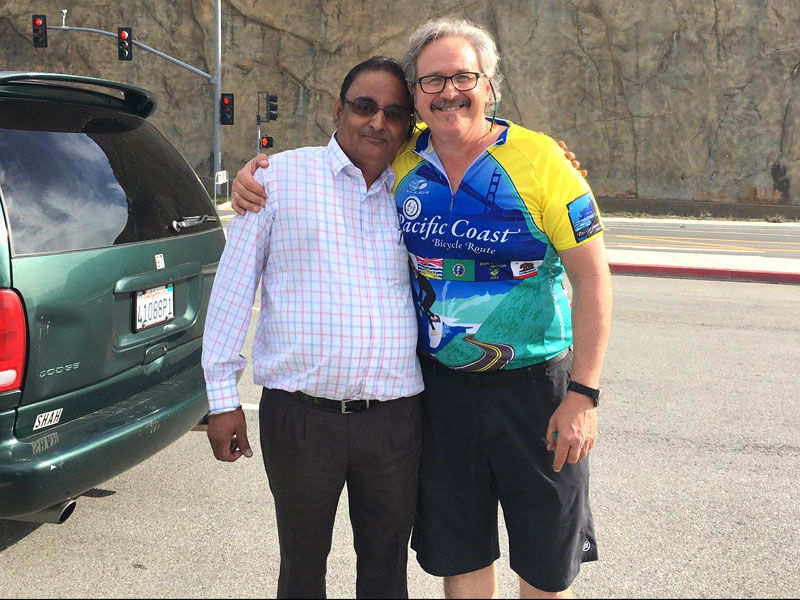
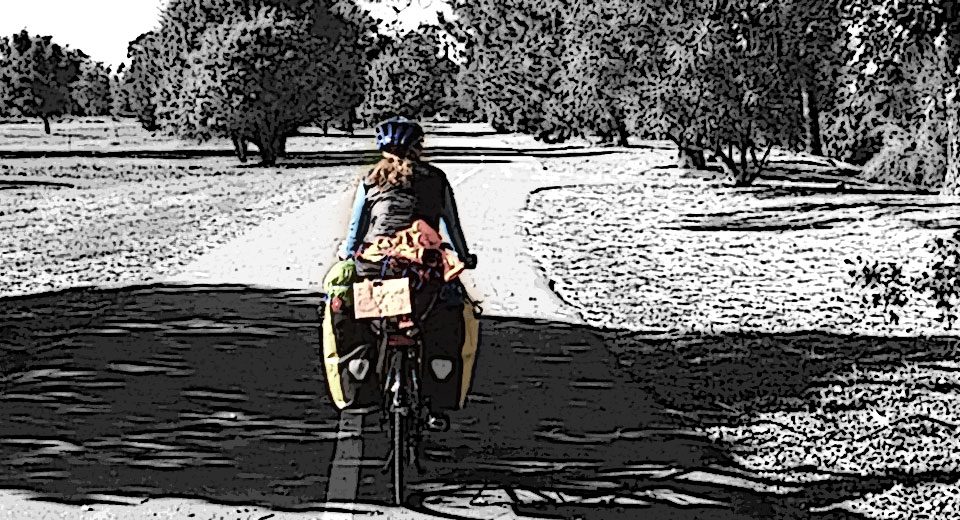
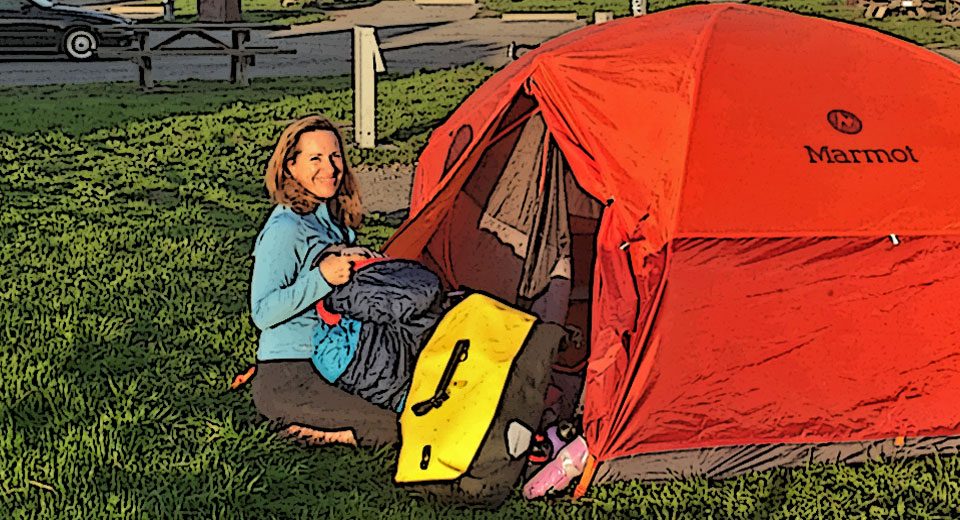
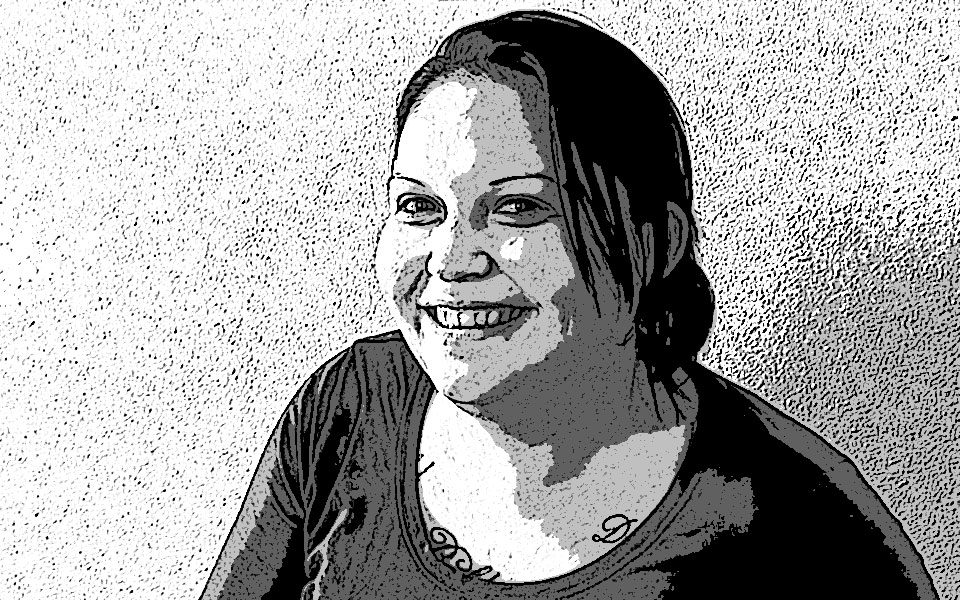
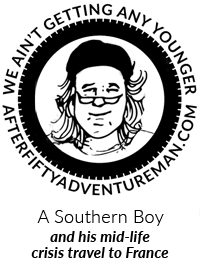
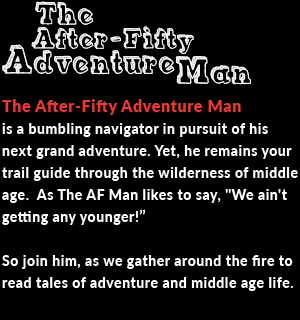









Leave a reply